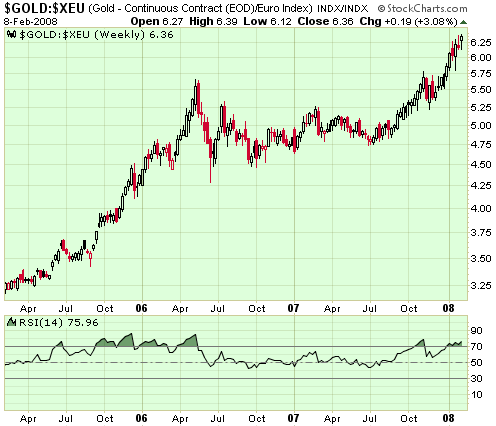|
|||
IMF Sales Don't Change AnythingBoris Sobolev The Federal Reserve did not deliberately decide to favor the indebted Americans at the expense of the savers. In fact, the central bank just followed what the credit markets were dictating: "slash the interest rates to help bail out the US banking system and the economy." By decreasing the short term borrowing rate, the Fed is helping banks borrow cheap and lend at higher rates, make handsome profit and help strengthen their balance sheets. All this in hopes that a more readily available credit will save the banks and once again jump start the economy. It is apparent that both parties to the subprime mortgage crime are getting bailed out: the banks who were lending to just about anyone and the homeowners who often exaggerated their income to get qualified for a bigger mortgage. It is also clear that such a bailout would reward this dishonest behavior - a classic moral hazard problem. But the alternative to the bailout is a serious recession that nobody has the stomach for - not Wall Street, not the Federal Reserve governors, not the politicians. The most important point for investors is that other central banks around the world will follow the Fed's footsteps. Canada and the UK have already started slashing their interest rates, the European Central Bank (ECB) will inevitably follow suit. Despite Mr. Trichet's constant denials, the European government bonds are climbing and the ECB will succumb to the rate cut fever and reduce the rates down to 3.50 from the current 4.00% before the end of the year. The Fed is also likely to cut a few more times, down to 2.50% in the next couple of months and down to 2.00% before the year end. This is one of the main reasons why gold is making new highs in all major currencies.  Many pundits have been calling for gold to correct since October. But the rally in gold has been strong, steady and without any sizable corrections. Much money is still sitting on the sidelines, waiting for a cheaper entry point. It is quite possible that this entry point is coming soon as the G7 has just agreed to allow the International Monetary Fund (IMF) to start selling a portion of its 3,200 tonne gold holdings to cover its running deficits. The details of the sale will not be known until April, but the most mentioned figure for the total tonnes up for sale is 400 or about one eighth of total IMF holdings. It is difficult to guess gold's reaction to the news, but it is clear that the metal's fundamentals remain sound. Paper money is in oversupply, gold is in demand by investors and especially countries looking to diversify away from the US dollar. Undoubtedly, buyers for extra gold offered by the IMF will be easily found. IMF sales don't change anything. Rate cuts on both sides of the Atlantic will continue and regardless of what the exchange rates between paper currencies do, gold will maintain its uptrend. This is an excerpt from an RSG Newsletter posted on February 10, 2008. Boris Sobolev |
